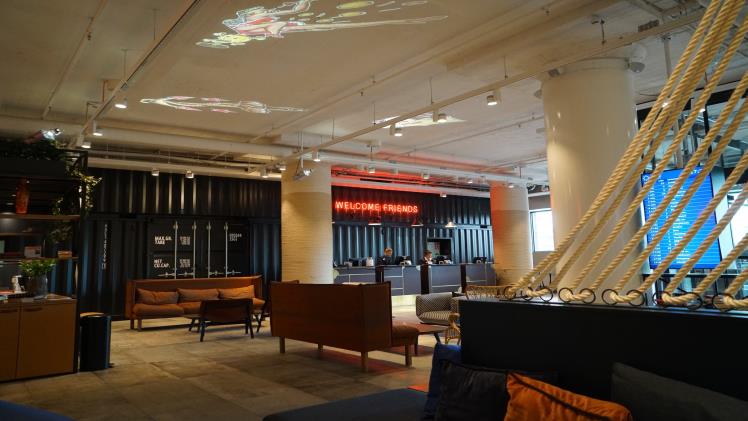Trends to Watch in the Hospitality Industry for 2024

The hospitality industry is akin to a chameleon, constantly adapting to the demands of the global traveler. As 2023 draws to a close, the horizon promises intriguing shifts that will redefine guest experiences. The coming year is poised to be groundbreaking, from technology integrations to eco-friendly initiatives. Let’s embark on a journey to explore the trends that will dominate 2024.
The Current State of the Hospitality Industry
The hospitality landscape of 2023 has showcased remarkable resilience and adaptability. As per the latest statistics, the Q2 2023 global review volume has soared to a commendable 86.3% of what it was before the pandemic, marking a noticeable upturn from the figures in Q2 2022.
Guest feedback remains overwhelmingly positive, with a staggering 93% satisfaction rate, underscoring the industry’s unwavering dedication to guest experience. Notably, hotel performance hinges on factors like impeccable service and prime location, whereas pitfalls like subpar WiFi and steep prices can deter potential patrons.
As the curtains draw on 2023, international tourism is poised to rebound, nearing 95% of its 2019 zenith, fortifying GDP and fostering employment opportunities. Innovations from tech giants like Google, with offerings such as PerformanceMax and GA4, are leaving an indelible mark on the sector.
Above all, the contemporary traveler’s priorities revolve around stringent health protocols, booking flexibility, and hunting for the best bargains. Gleaning insights from these trends provide invaluable direction for the industry to pivot and meet the evolving desires of its clientele.
Hospitality Industry in 2024: A Glimpse into the Future
With 2023 serving as a testament to the industry’s mettle, 2024 is poised to be a year where innovation converges with tradition. As we look ahead, certain trends are emerging to shape the fabric of the hospitality sector, reflecting a world that’s becoming more connected, conscious, and craving authenticity.
Personalized Experiences
The era of one-size-fits-all is long gone. Personalized experiences have become the gold standard in hospitality. With the aid of advanced tools such as HelloShift, hotels are now equipped to customize services to match each guest’s unique preferences. Further advancements will only bring more wonders. Imagine walking into a room that knows your favorite ambient lighting or being served your preferred drink without even asking for it.
Eco-Friendly Practices
As climate change concerns continue to grow, eco-friendly practices in the hospitality sector are no longer an option but a necessity. Businesses are ramping up their efforts to reduce plastic waste, ensure sustainability, and adopt energy-efficient strategies. For the modern traveler, an establishment’s environmental responsibility could be the deciding factor in their choice of accommodation or dining.
Hyper-Local Experiences
Travelers in 2024 are not just looking for a bed to sleep in but an experience rooted in the local ethos. The hyper-local trend sees businesses emphasizing the rich tapestry of local culture, history, and gastronomy. This is materialized through partnerships with local vendors and curated activities that give guests a genuine taste of the locale.
Technology Integration
In an increasingly digital world, technology integration in hospitality is pivotal. Online bookings, mobile check-ins, chatbots, and virtual menus aren’t just conveniences but essentials. However, striking the right balance is crucial to ensure that technology complements, rather than replaces, personal guest interactions.
Health and Wellness
The adage “health is wealth” rings true even on vacation. An upswing in demand for health and wellness amenities indicates travelers’ inclination towards holistic experiences. Modern hotels are equipped with state-of-the-art fitness centers, offer nutritious dining choices, and even integrate sleep-tracking technology in rooms for the health-conscious traveler.
Flexible Spaces
The conventional definition of space in hotels is evolving. Flexible spaces that seamlessly adapt to travelers’ diverse needs are in vogue. Whether it’s a business traveler looking for a cozy co-working corner or a leisure traveler wanting a change of scenery, hotels are offering versatile zones like convertible meeting rooms and communal worktables.
Culinary Tourism
The allure of food is universal. Culinary tourism is flourishing as travelers constantly seek out authentic food experiences. From attending local food festivals and culinary tours to partaking in interactive cooking classes, the gastronomic journey is as integral to travel as sightseeing. Accommodations are also jumping on this bandwagon, with many focusing on unique dining experiences enriched with locally sourced ingredients.
Collaborative Spaces
Moving beyond mere sleeping quarters, hotels are fostering collaborative spaces that promote social interactions. Features such as rooftop lounges and co-working zones are not just amenities but vital cogs in creating community-driven atmospheres. In essence, hotels are not just places to stay but destinations in their own right.
Closing Thoughts
In conclusion, the hospitality industry of 2024 will be characterized by its adaptability, innovation, and commitment to offering unparalleled experiences. From leveraging technology to promote eco-friendly practices, the future looks promising for both businesses and travelers.





